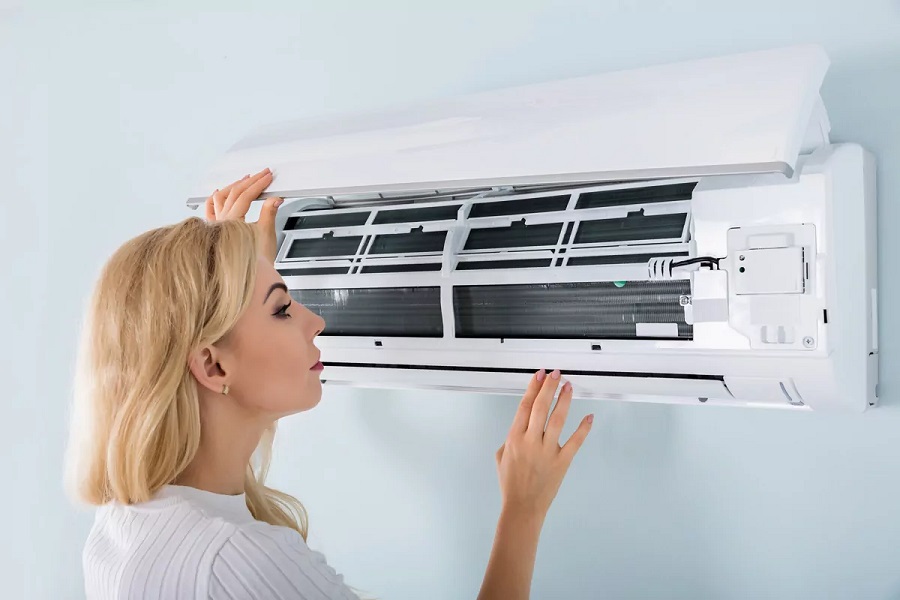In the dynamic business landscape, an unforeseen HVAC system breakdown can cause significant disruptions, impacting productivity, employee comfort, and even safety. This concern underscores the importance of emergency preparedness for all businesses.
In this guide, we will outline steps for effectively planning, preventing, and protecting against HVAC emergencies. By being equipped to respond during a crisis, your company can reduce downtime and safeguard its operations and workforce.
Assess the Vulnerabilities of Your HVAC System
Begin by thoroughly evaluating your equipment, noting its age, condition, and capacity. Also, understand the specific vulnerabilities related to your industry or location. If you’re in an area prone to extreme weather, such as hurricanes or blizzards, take extra precautions to safeguard your HVAC equipment.
Consider hiring a professional technician for an inspection and maintenance recommendations. They can evaluate your system’s health, identify hidden issues, and suggest reliability improvements. Find technicians with quick response times and expertise in emergency repairs specific to your unit. Establishing relationships and pre-existing agreements can ensure faster service and potentially lower costs.
Establish Emergency Response Procedures
It’s crucial to have clear protocols to minimize disruption and enhance safety. Here’s how to create one:
- Identify Important Contacts
Maintain a notification list that includes internal personnel such as facility managers and maintenance teams, as well as external contacts like reliable HVAC contractors. Ensure you have after-hours contact information, and consider having multiple service providers on standby in case your primary contractor is unavailable.
- Document Procedures
Clearly outline all essential processes, including steps for safely shutting down the system, isolating affected areas, and implementing temporary fixes until professional help arrives. Appoint clear roles and responsibilities to every team member to prevent confusion during HVAC emergencies.
- Include Visual Aids
Incorporate diagrams and schematics of the equipment that highlight essential components such as shut-off valves and circuit breakers. Ensure these visuals are clear, easy to understand, and regularly updated to reflect system changes.
- Distribute the Crisis Plan
Share copies of the procedure with all relevant personnel, including facility managers, maintenance staff, and department heads.
- Schedule Periodic Reviews
The emergency plan should be regularly reexamined to keep it current with changes in equipment, personnel, or building layout.
Conduct Employee Training
Hold regular practice sessions on the emergency response plan, detailing each employee’s role during an HVAC crisis. Ensure these sessions cover essential technical skills and situational awareness, including how to locate and operate shut-off valves, circuit breakers, and other critical HVAC components.
- Emergency Drills
Implement exercises that simulate crises, like system malfunctions or leaks. These activities reinforce procedures and allow employees to practice under pressure, enhancing their response efficiency in real HVAC emergencies. During drills, evaluate reaction times and decision-making, noting any confusion or delays to improve your plan. Additionally, identify knowledge gaps and offer further training to strengthen skills.
- Recognition of Warning Signs
Train employees to identify early HVAC issues, such as unusual noises, temperature changes, or strange odors. Foster a culture of prompt reporting so that employees feel accountable for notifying management at the first signs of trouble.
Keep Stakeholders Informed During Crises
Establish a clear communication protocol that defines how information will be disseminated to employees, clients, suppliers, and other stakeholders. This protocol should specify the types of information to be communicated, the timing of updates, and the preferred contact methods.
- Designate a Spokesperson or Communication Team
Group members should receive training in crisis communication and have access to reliable channels, such as email distribution lists or mass notification systems, to convey critical information clearly and calmly.
- Leverage Technology
To boost communication efficiency, use automated messaging systems for real-time alerts and updates. Utilize social media platforms or internal apps to keep everyone connected. Regularly review and test your communication strategy, incorporating stakeholder feedback to improve it.
Secure Backup Systems and Redundancies
Installing backup generators ensures temporary power during outages, allowing your HVAC system to operate continuously and maintaining comfort for employees and customers. This strategy is especially vital if your business is reliant on climate control.
Consider adding redundant HVAC units or components that automatically activate if the primary equipment fails. These may be secondary units or modular systems where components can be swapped out without disrupting overall operations.
Perform Routine Maintenance
Regular inspections and tune-ups help identify minor issues, such as leaks or worn-out parts, before they become major disruptions. To keep your HVAC system running efficiently, establish a maintenance schedule that includes tasks like coil cleaning and filter replacements.
While some duties can be done in-house, partnering with professional HVAC technicians is recommended for thorough inspections. Certified contractors can diagnose problems like refrigerant leaks that may go unnoticed. Additionally, many service providers offer preventive maintenance agreements for scheduled visits and priority services.
Empower Your Business With Help From Experts
Taking proactive steps toward crisis preparedness is crucial for your business’s long-term success and resilience. Reach out to a trusted HVAC company today to create a tailored emergency preparedness strategy that covers all aspects of your operations.
Whether it’s planning for unexpected disruptions, preventing equipment failure, or safeguarding your workplace, their expertise can equip you with the necessary tools and knowledge to face any emergency confidently.

